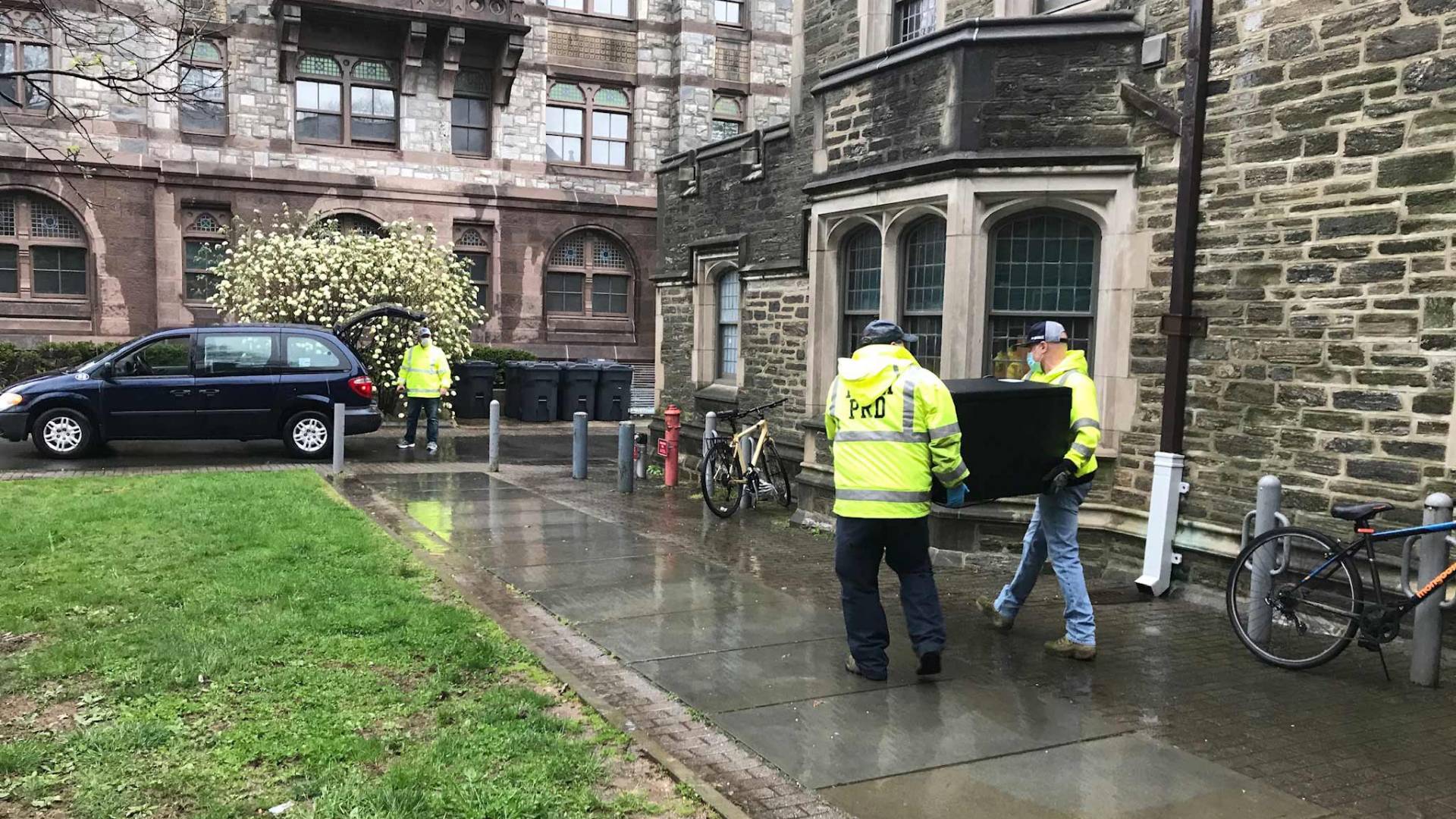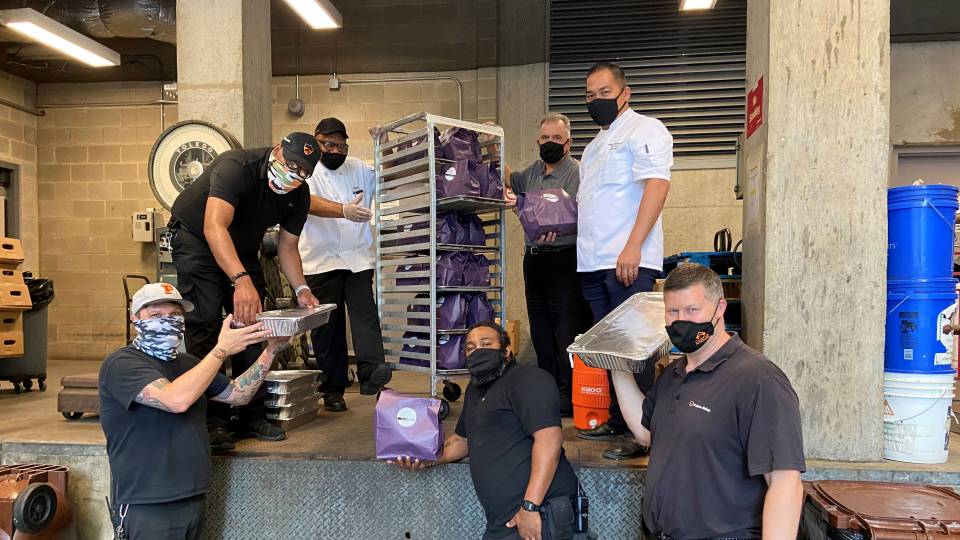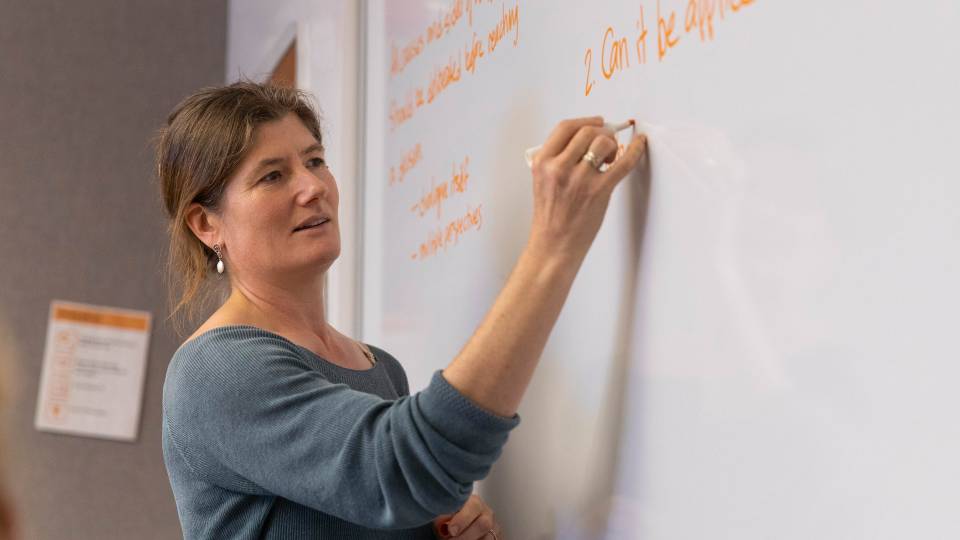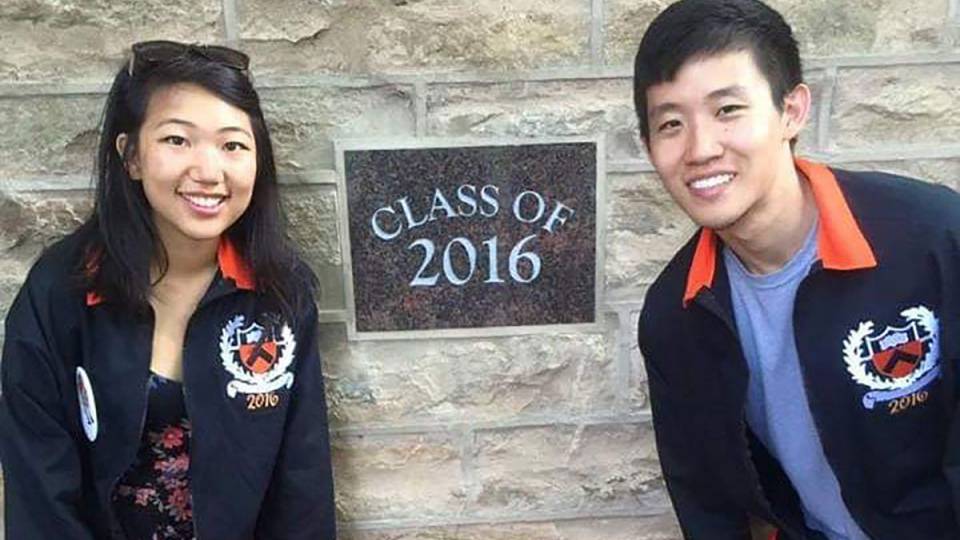The Princeton University Relief Fund will provide direct support to local community organizations that are working to alleviate economic distress related to COVID-19 among families, individuals and businesses. Pictured: Members of the Princeton Recreation Department pick up mini-fridges donated by Princeton University for the Princeton Public School District and Send Hunger Packing Princeton to provide to families in Princeton in need.
Princeton University has established the Princeton University Relief Fund to provide additional direct support to community organizations that are working to alleviate economic distress related to COVID-19 among individuals and businesses. The initial University commitment to the fund will be $1 million.
This commitment is in addition to the range of ways the University has been working to assist the local community since the onset of the pandemic, including direct support to organizations fighting food insecurity, donations of PPE to state and local partners, hosting blood drives, providing perishable food items to local food kitchens, and more creative contributions, such as donating dorm refrigerators to local organizations and families.
The COVID-19 pandemic has resulted in immense financial pressures for nonprofits and service organizations; businesses, particularly small businesses; and individuals and families. The impacts in the communities where the University is located are significant.
The University will use the fund to contribute to relief and recovery efforts already underway, and those that will emerge in the coming months. The fund is designed to distribute funds to partner organizations that provide grants, services and other forms of direct support to local organizations, businesses and families.
“Many local families, service organizations and businesses are struggling as a result of the pandemic. Princeton has been actively engaged in early efforts to alleviate pressing needs, and we believe there will be an opportunity to continue to do so over the long term as the response continues,” said President Christopher L. Eisgruber. “The University is proud to be a member of the local community. At this critical time, we want to find ways to support those who serve our closest neighbors.”
A $1 million commitment
To support community relief efforts related to COVID-19, the University has committed $1 million to the Princeton University Relief Fund to support immediate needs in the University’s local community, particularly the Municipality of Princeton. The focus will be on contributions to organizations that distribute directly to other nonprofits or, where appropriate, businesses, and to partnerships of community organizations working collaboratively to address current needs.
A committee representing the Office of the President, Office of Community and Regional Affairs and the Pace Center for Civic Engagement will make recommendations to Provost Prentice for disbursements from the fund, which will be administered by the Office of Community and Regional Affairs.
The committee has already made recommendations for two initial disbursements from the fund, and they have been approved by the president and provost:
- $400,000 to the Princeton Area Community Foundation COVID Relief Fund, which was established to provide support to community organizations actively engaged in addressing issues elevated during the crisis including food and housing insecurity, reduced and lost income, child care and behavioral and mental health needs.
- $100,000 to the Princeton Children’s Fund Coronavirus Emergency Relief Fund, which provides financial support to economically disadvantaged local families and individuals in need of assistance with rent, utility bills, child care and medical expenses.
The remaining $500,000 will be distributed as additional contribution opportunities emerge. The University is actively pursuing other partner organizations, especially those focused on helping local businesses, and will announce those commitments as additional partners are identified.
University relief efforts include PPE donations, blood drives, volunteer opportunities
In addition to the Princeton Fund for Recovery, the University has been providing relief efforts to the local community in numerous ways. These include, but are not limited to:
- Donation of personal protective equipment. Over the past two months, the University has been identifying and delivering personal protection equipment (PPE) — including gloves, masks, respirators, surgical gowns and other items — from labs and other sources on campus to support emergency services in the Municipality of Princeton and West Windsor Township.
- Volunteering in the community. Faculty and staff are offering their time as volunteers through the University’s Special Activities and Resources Group (SARG), which matches appropriate volunteers with relevant projects.
- Blood drives. In partnership with the American Red Cross, the University held the first of a series of community blood drives on April 16-17. More than 180 people made donations over the two days. The total collected for both days was 96 productive units, which will provide for 288 hospital patients. Appropriate safety and social distancing guidelines were followed. A further round of appointments in May are already fully booked. For more information visit the Princeton University Red Cross webpage.
- Addressing food insecurity. The University made a $25,000 contribution to Send Hunger Packing Princeton (SHUPP) to support the nonprofit group’s collaboration with the Princeton Public Schools. This collaboration, which provides meals at home for the district’s 500 students who participate in the free/reduced price lunch program, is being expanded during the crisis. Many of the students rely on food they receive at school, but the district’s schools are providing remote instruction through at least April 30. As part of the collaboration, the district is helping fill the weekday food gap; SHUPP provides weekend meals for the children. The University has also donated 15 mini-fridges to the Princeton Public Schools and SHUPP to provide to families in Princeton in need of additional refrigeration for the family meals that are being distributed. Campus Dining has donated a range of perishable and nonperishable food items — from liquid eggs to basmati rice and granola — to the Trenton Area Soup Kitchen and Arm in Arm.
























